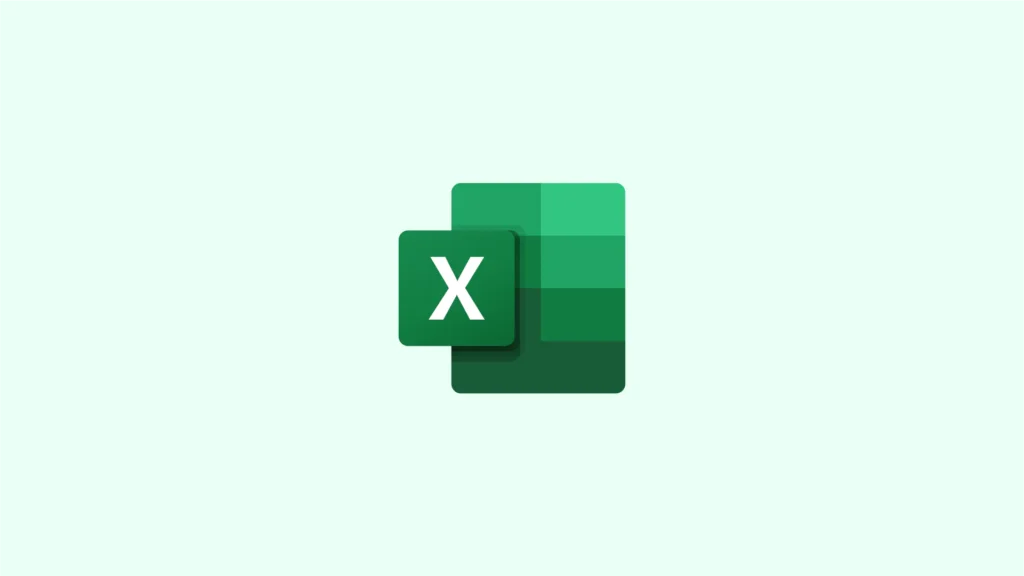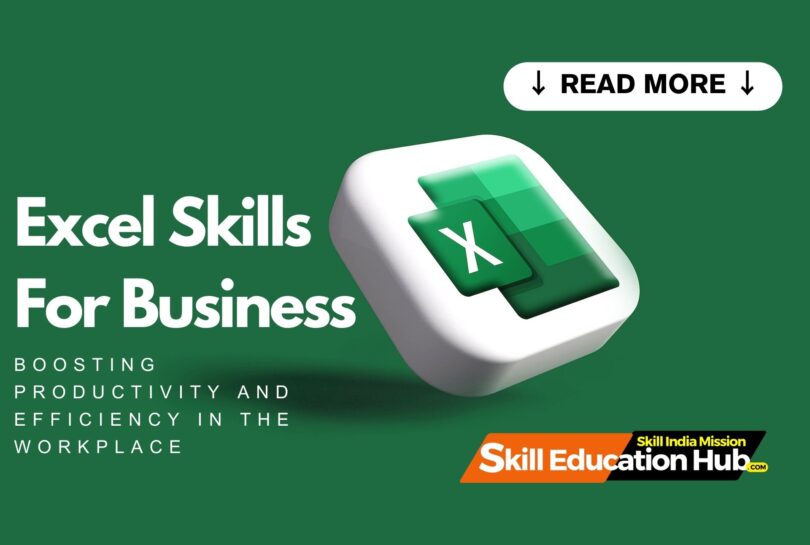Excel Skills for Business:
Boosting Productivity and Efficiency in the Workplace
In today’s data-driven business landscape, proficiency in Microsoft Excel is not just an advantage; it’s a necessity. Excel remains one of the most widely used tools for data analysis, financial modeling, and decision-making across industries. For professionals looking to advance their careers in fields such as finance, marketing, operations, or data analysis, mastering advanced Excel skills is essential. The Excel Skills for Business Specialization offers a comprehensive pathway to excel in this critical area.

Understanding the Excel Skills for Business Specialization:
The Excel Skills for Business Specialization is a series of courses offered by Coursera, designed to equip learners with advanced Excel skills tailored specifically for business applications. Developed by Macquarie University, one of Australia’s leading universities, in collaboration with industry experts, this specialization provides a structured and practical approach to mastering Excel for business purposes.
Course Overview:
The specialization comprises several courses, each focusing on different aspects of Excel skills for business. These courses include:
- Excel Skills for Business: Essentials
- Excel Skills for Business: Intermediate
- Excel Skills for Business: Advanced
- Data Visualization with Advanced Excel
- Data Analysis and Presentation Skills: the PwC Approach
Advanced Excel Skills:
The Advanced Excel course delves deeper into the functionalities and features of Excel that are particularly relevant for business professionals. Key topics covered in this course include:
Advanced functions and formulas: Learning complex functions such as VLOOKUP, HLOOKUP, INDEX-MATCH, SUMIFS, and COUNTIFS to perform sophisticated data analysis and manipulation.
Data validation and analysis: Understanding techniques for validating and cleansing data, as well as advanced data analysis tools like PivotTables, Power Query, and Power Pivot.
Scenario analysis and modeling: Building dynamic financial models, conducting scenario analysis, and creating interactive dashboards to support decision-making processes.
Automation with macros and VBA: Automating repetitive tasks and developing custom solutions using Excel macros and Visual Basic for Applications (VBA) programming.
Advanced data visualization: Utilizing advanced charting techniques, sparklines, and conditional formatting to create visually appealing and insightful reports.
| Advanced Excel Skill | Description |
|---|---|
| Conditional Formatting | Formatting cells based on specific conditions |
| PivotTables | Summarizing and analyzing large datasets dynamically |
| Macros | Automating repetitive tasks within Excel |
| VLOOKUP | Finding and retrieving data from a table or range |
| Charts | Creating visual representations of data |
| Filters | Filtering data based on specified criteria |
| INDEX MATCH | Searching for data within a table and returning a match |
| COUNTIF | Counting cells that meet a specified condition |
| Data manipulation | Manipulating and transforming data to meet analysis needs |
| Data simulations | Creating scenarios to simulate real-world situations |
| IFERROR | Handling errors in formulas and functions |
| Power Query | Extracting, transforming, and loading data from external sources |
| Data Entry | Inputting data into Excel efficiently and accurately |
| Flash Fill | Automatically filling data based on patterns |
| Power Pivot | Analyzing and visualizing large datasets from multiple sources |
| SUMIF | Adding values that meet specified conditions |
| Data visualization | Presenting data visually to aid understanding |
| Editing or modifying simple recorded macros | Altering existing macros to fit specific needs |
| Saving and opening a workbook | Managing workbook files, including saving and opening |
| Sorting data | Arranging data in a specified order |
| Sparklines | Creating small charts in a single cell for quick analysis |
| Statistical modeling | Using statistical methods to analyze data and make predictions |
| SUMPRODUCT | Multiplying and summing arrays to perform calculations |
| Using formulas to manipulate basic data | Performing calculations and operations on data |
This table outlines various advanced Excel skills, along with brief descriptions of each skill. These skills are essential for effective data analysis, manipulation, visualization, and automation within Excel.
- Real-world Applications: Throughout the course, learners are presented with real-world business scenarios and case studies to apply their newfound Excel skills. From financial analysis and budgeting to sales forecasting and market analysis, the specialization emphasizes practical applications of Excel in various business contexts.
Benefits of the Specialization:
- Enhanced employability: Mastering advanced Excel skills enhances your marketability and opens up opportunities across industries and roles that require data analysis and financial modeling expertise.
- Improved decision-making: With advanced Excel skills, you can analyze complex data sets more effectively, derive actionable insights, and make data-driven decisions with confidence.
- Career advancement: Excel proficiency is highly valued in roles such as financial analyst, business analyst, data analyst, project manager, and more. Acquiring advanced Excel skills can accelerate your career progression in these fields.
- Flexibility and convenience: The specialization is delivered online, allowing learners to study at their own pace and schedule, making it accessible to working professionals seeking to upskill or advance their careers.
What’s in the Specialization?
The Excel Skills for Business Specialization is a series of courses that help you become an expert in Excel for work. There are a few different courses in the specialization, each focusing on different parts of Excel:
What You’ll Learn in the Advanced Excel Course: The Advanced Excel course teaches you even more about Excel, especially the things that are really useful for work. Here are some of the things you’ll learn:
Why It’s Useful :
- Get Better Jobs: If you’re really good at Excel, you can get better jobs because lots of companies need people who can use Excel well.
- Make Better Decisions: With Excel skills, you can understand data better and make smarter decisions at work.
- Move Up in Your Career: If you want to get promoted or get a raise, being great at Excel can help because bosses like people who can use Excel to make the company better.
- Learn on Your Own Time: You can take the courses online whenever you have free time, so it’s easy to fit into your schedule.
- Essentials: The basics you need to know to get started.
- Intermediate: Building on what you’ve learned, adding more skills.
- Advanced: Getting really good at Excel, learning advanced stuff.
- Data Visualization: Making your data look good and easy to understand.
- Data Analysis: Using Excel to understand and present data better.
- Fancy Formulas: Learning how to use special formulas that do complicated stuff, like looking up information and doing calculations.
- Data Tricks: Finding out how to clean up messy data and analyze it better.
- Making Models: Building cool models that help you understand how things might change in the future.
- Automating Tasks: Making Excel do things automatically, so you don’t have to do them by hand every time.
- Pretty Pictures: Learning how to make your data look great with charts and colors.
Becoming an Excel pro through the Excel Skills for Business Specialization can really help your career. Whether you’re in finance, marketing, or any other job, being good at Excel can make you stand out. So why wait? Start learning today and see where your new Excel skills can take you!
Questions:
- How can Excel skills benefit your business?
- What are the must-have Excel skills for business professionals?
- How long does it take to become proficient in Excel for business?
- Is it essential for business owners to learn Excel?
- What resources are available to improve Excel skills for business?
- What is advanced Excel skills?
- How do you say you have advanced Excel skills?
- How do I put advanced Excel skills on my resume?
- What are the five basic Excel skills?
- Is advanced Excel easy?
- Is Advanced Excel useful?







